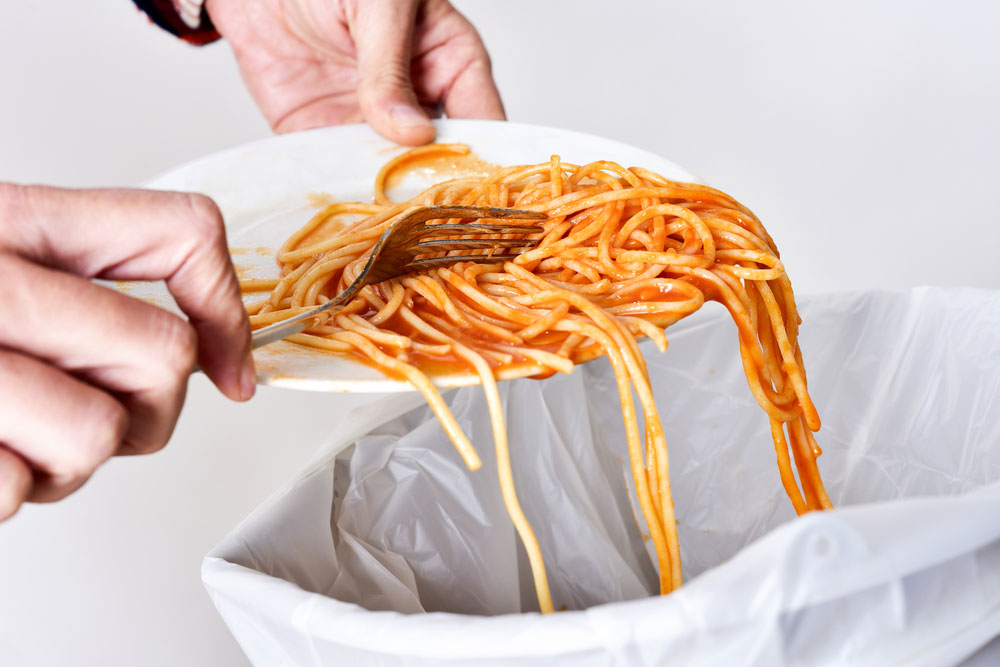Anjan Chatterjee is the chief of Speciality Restaurants
When I was a kid, every Sunday my mother would cook chicken curry. It was greatly relished by us brothers and sisters. In fact, we would fight among ourselves to be able to lick the last morsel; a smattering of rice over the remnants of the gravy would be polished off instantly. My mother would smile at this knowing that what she had instilled into our minds about wasting food had taken root.
The leftovers would be packed up and refrigerated for the next day. In fact, whenever she made aloo dim sheddho (boiled eggs and potatoes) for a meal, the leftovers would inevitably find their way into our sandwiches for the next day’s tiffin!
My parents taught us that we should worship food and never waste it. In fact, my mother would make delicious preparations with lau khosha (bottle gourd peels), aloo khosha (potato peels), and kumro khosha (red pumpkin peels) — all things that most people throw away.
Those ‘waste not want not’ days are only a memory now. Today, the scenario has completely changed. The wastage of food now is an injustice of colossal proportions. Global food loss and waste amounts to about one-third — that is about 1.3 billion tonnes — of all food produced every year.
When we talk of food wastage, we don’t talk about rotten food or food that has taken a turn. We talk about good fresh food going into the trash can on a massive scale.
Recently, I was in New Delhi to give a talk on the wastage of food and the quality of food served in restaurants in our country. I was shocked to learn that nearly 21 million tonnes of India’s entire annual wheat production goes to waste.
Around 67 million tonnes of food, valued at Rs 92,000 crore, is wasted in India every year. The country ranks 63rd among 88 countries in the Global Hunger Index. We live in a Third World country where people are dying of hunger and malnutrition. And yet...!
People love food. In fact, it’s a social event as we celebrate or mark every occasion with food — from the time we are born to the point when we die.
Our culture and traditions play a big role in this wastage. The bigger the wedding, the larger the party, the more massive the wastage is expected to be.
As a teenager, I used to love going to these big fat weddings because I loved to gorge on the myriad delicacies laid out before me. What always puzzled me was that my father showed no such interest in attending these social functions.
It was only later that I learnt that he could not bear to see how people wasted food on such occasions. His mantra used to be: “Don’t waste food. Live simply so that others may simply live.”
When I first joined the hotel industry, all my pre-conceived notions about ‘food is worship’ went for a toss. We should not follow the trends of the American economy because food wastage there amounts to between 45 million tonnes and 103 million tonnes per year.
And most of it accounting from food services. Most of the double-sized burgers and the huge glasses of Coke find their way into dustbins, probably why the trash cans there are so much bigger than ours.
As a restaurateur having respect for food, I have given a proper mandate and guidance to my restaurant staff to educate the guests on food wastage. Hence, we at Speciality Restaurants have redesigned our menu to include Regular and Large portions, so that our guests can eat smaller portions and order more if required instead of wasting it. Sometimes, the eyes are larger than the stomach!
Even in my office I have various measures to control food wastage by making weekly visits to the cafeteria to check on the dishes and if the standards of quality and hygiene are being met. We had started distributing extra food to the poor, but then stopped due to food safety norms. We are all aware that wastage of food and a supply of unhygienic food can cripple a country’s economy.
We should try and follow Denmark, which is one of the few countries that have achieved a national reduction of food wastage by 25 per cent in five years. Every baby step taken in this direction will count. We may not be able to reduce food wastage during production, but we can certainly reduce it at the personal level. If every individual takes care, we can achieve wonders.
So, it is time for all of us, especially restaurants, to step up and prevent this colossal waste. Just don’t forget the adage: ‘Love food but hate waste.’ As George Bernard Shaw succinctly put it: “There is no sincerer love than the love of food.”










